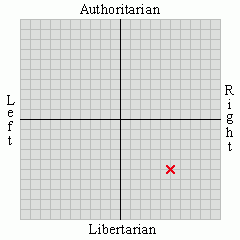Spotted on Unenlightened Commentary - a timely reminder.
Ten Years For Photographing Police?It may have been 'old news' but is worth revisiting
"If new rather nebulous "anti terrorism" laws are introduced next month then possibly yes.
Update: Yes this is from last year. "
"Set to become law on 16 February [2009], the Counter-Terrorism Act 2008 amends the Terrorism Act 2000 regarding offences relating to information about members of armed forces, a member of the intelligence services, or a police officer.and
The new set of rules, under section 76 of the 2008 Act and section 58A of the 2000 Act, will target anyone who 'elicits or attempts to elicit information about (members of armed forces) ... which is of a kind likely to be useful to a person committing or preparing an act of terrorism'.
A person found guilty of this offence could be liable to imprisonment for up to 10 years, and to a fine.
The law is expected to increase the anti-terrorism powers used today by police officers to stop photographers, including press photographers, from taking pictures in public places. 'Who is to say that police officers won't abuse these powers,' asks freelance photographer Justin Tallis, who was threatened by an officer last week."
"Check bjp-online.com for updates."Here is the BJP's latest update, dated 4th March 2010
Terror watchdog calls for end to stop-and-search
Lord Carlile of Berriew, the UK's terror watchdog, has called for Section 44 of the Terrorism Act to be scrapped, weeks after the European Court of Human Rights found it illegal.
Speaking at the Policy Exchange think-tank, Lord Carlile said that the use of the controversial powers had become counter-productive in the fight against terrorism, according to the Evening Standard.
He added: "The power given by Section 44 continues to cause a disproportionately bad effect on community relations, with the often inaccurate but genuinely felt belief that it is used in a discriminatory way. It has certainly been used in some instances without reason, let alone suspicion." Read the Evening Standard's full report here.
Section 44 powers have been found to be illegal by the European Court of Human Rights. The court said that officers could easily abuse the powers and that, since police officers can stop anyone without the need for suspicion, it was virtually impossible for a member of the public to prove that the powers had been abused.
In the past two years, the powers have been increasingly used against photographers. In January, close to 2000 of them - amateurs and professionals - gathered in Trafalgar Square to defend their rights to take pictures in public places and protest the 'illegal' use of stop-and-search powers against them.
Lord Carlile has also advised police officers to use Section 43, which requires officers to have suspicion before stopping someone.More references on Evening Standard's site relating to ECHR are here
....





No comments:
Post a Comment